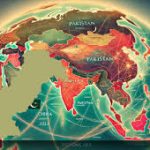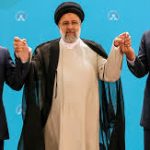Introduction
In 2025, technology is not just transforming businesses and society—it is redefining politics, governance, and diplomacy in the Middle East. From artificial intelligence-driven policy analysis to blockchain-based voting systems, technology is influencing decision-making, transparency, and public engagement. Kuwait, with its stable political system and emphasis on innovation, is actively integrating technology into governance to enhance efficiency, security, and citizen participation.
This article explores how the fusion of politics and technology is shaping the Middle East in 2025, with a focus on Kuwait’s initiatives and the broader regional implications.
Digital Governance and Smart Policy
Governments are increasingly leveraging data analytics, AI, and digital platforms to improve decision-making. In Kuwait, smart governance initiatives allow policymakers to analyze real-time economic, social, and environmental data to make informed decisions.
Digital dashboards help monitor public services, assess economic indicators, and optimize infrastructure planning. This reduces bureaucratic delays, improves transparency, and ensures that public resources are used efficiently.
Cybersecurity as a Political Priority
As governments adopt digital tools, cybersecurity has become a top political concern. State-sponsored cyberattacks, data breaches, and misinformation campaigns pose significant threats to stability and governance.
Kuwait has invested heavily in cybersecurity infrastructure, creating specialized agencies to monitor threats, protect critical infrastructure, and enforce digital regulations. These measures not only safeguard the nation but also reinforce public trust in digital governance.
Blockchain and Electoral Innovation
Blockchain technology is increasingly being explored for electoral processes, public records, and transparency initiatives. By providing immutable, verifiable data, blockchain ensures fair voting systems and secure citizen services.
In Kuwait, pilot programs are testing blockchain for government records, financial transparency, and secure citizen identification. Such initiatives position the country as a regional leader in using technology to strengthen political integrity.
AI in Policy Forecasting
Artificial intelligence is revolutionizing policy-making. Predictive models analyze historical data and global trends to anticipate economic shifts, social issues, and security threats.
Kuwait’s policymakers use AI-driven simulations to optimize budget allocations, forecast urban growth, and plan energy policies. These tools provide deeper insights and enable proactive strategies rather than reactive measures, enhancing governance efficiency.
Regional Collaboration Through Technology
Technology also facilitates regional political collaboration. Shared digital platforms, cloud infrastructure, and data exchange allow Gulf Cooperation Council (GCC) nations to coordinate security measures, manage resources, and respond to crises collectively.
Kuwait actively participates in these regional digital diplomacy initiatives, fostering trust, enhancing cooperation, and positioning itself as a technologically advanced and politically neutral actor in the Middle East.
Political Risks of Technological Adoption
Despite its benefits, technology introduces new political risks. Surveillance concerns, digital inequality, and misinformation campaigns challenge governance legitimacy.
Kuwait addresses these risks by establishing robust regulatory frameworks, promoting digital literacy, and ensuring that technological adoption aligns with ethical and legal standards. This balance is critical to leveraging technology effectively without compromising political stability or citizens’ rights.
Global Implications of Middle East Digital Politics
The intersection of politics and technology in the Middle East influences global strategies. Nations worldwide are observing regional initiatives for lessons in AI governance, blockchain transparency, and cybersecurity diplomacy.
Kuwait’s innovations serve as a model for other nations in the region, demonstrating how a small state can leverage technology to enhance governance, regional cooperation, and international reputation.
FAQs
Q1: How is technology shaping politics in Kuwait?
AI, blockchain, and digital governance tools improve decision-making, transparency, and citizen engagement.
Q2: What role does cybersecurity play in political stability?
Cybersecurity protects critical infrastructure, prevents state-sponsored attacks, and maintains public trust in governance.
Q3: How is blockchain being used in governance?
Blockchain ensures secure voting systems, verifiable records, and financial transparency.
Q4: What are the risks of integrating technology into politics?
Risks include surveillance concerns, misinformation, and digital inequality.
Q5: How does Kuwait influence regional digital politics?
By participating in GCC digital initiatives, sharing best practices, and promoting technological collaboration.
Conclusion
In 2025, technology has become inseparable from politics in the Middle East. From AI-driven policy decisions to blockchain-based governance, nations are leveraging innovation to improve transparency, efficiency, and stability.
Kuwait exemplifies the potential of digital diplomacy, demonstrating that even small nations can play a significant role in shaping regional and global political landscapes through technology. By balancing innovation with ethical governance, Kuwait sets a benchmark for future political and technological integration in the Middle East









